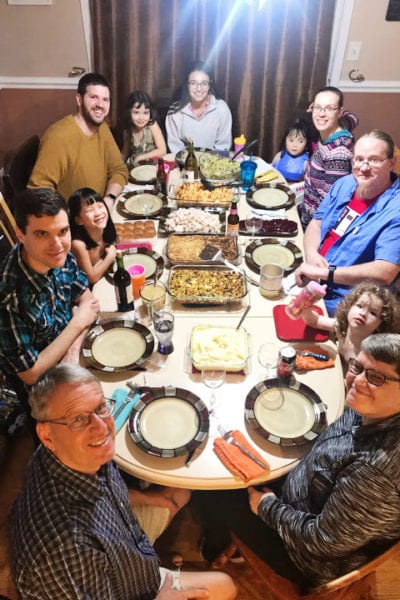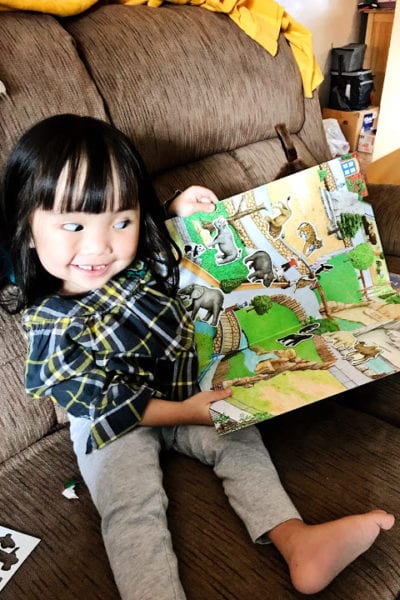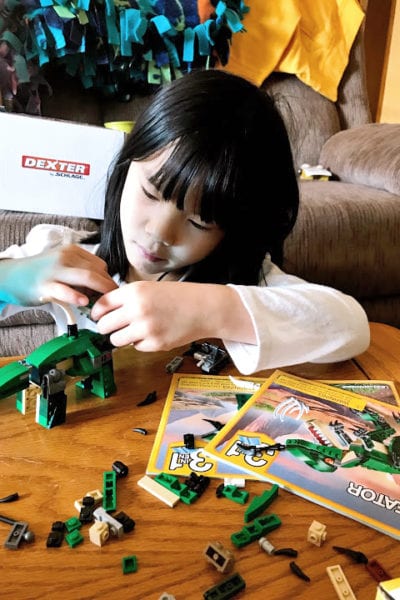Holidays can be beautiful times of family togetherness, traditions, and celebrations – but they can also be times of disrupted routines, sensory overload, and expectations that don’t quite line up with reality.
As parents, we need to prepare ourselves to walk our children through these times – and the first step in doing so is to recognize and be conscious of our own thoughts and feelings about the holidays:
Which family gatherings are stressful for you?
Are there parties that feel overwhelming?
Does interacting with certain family members inevitably add to your stress levels?
When we, as adults, are feeling a lot of stress – and, in particular, when we are being affected by that stress but without being fully conscious of it – we will not be in a good place to walk our children through the experiences that are going to be most challenging for them. As Dr. Karyn Purvis was known to say, “You cannot lead a child to a place of healing if you do not know the way yourself.” This is true in the big picture – you cannot lead a child to a place of secure attachment and healing if you have not taken that journey yourself – but it’s also true in the small things. If you do not understand how to negotiate stressful family interactions while maintaining an inner sense of peace, you will not be able to help your child do so, either.
As you make decisions about which family gatherings to attend and which traditions to maintain this year and how to do so, it is wise to be fully aware of what your own feelings and responses to each one might be and how those feelings and responses might affect your ability to support your children.

Just as we adults are all individuals, each of us sometimes responding very differently to similar situations, our children are individuals, as well. What works well for one child at one time may not work well for another child or even for the same child at a different time.
That said, our family has come up with some guiding principles to help us make decisions surrounding the holidays.
1. My husband and I decide together on a general framework that will work best for our family, and we stick to that, regardless of how other people may feel about it.
For most of the last few years, we have told family and friends that we are willing to travel for either Thanksgiving or Christmas but not both. We are happy to have any family members who would like to join us come to our house, and if they choose not to come or to gather elsewhere, we are completely fine with that, but we will only travel once.
2. We simplify and spread things out.
My children cannot handle a marathon Christmas morning gift unwrapping session in which each child is given a huge pile of presents. It’s overwhelming for them. We spread out the gifts, allowing children to open one or two at a time and play with them as they open them.
We don’t usually do a lot of decorating, particularly if we will be traveling – some people love it, and that is wonderful, but that’s not me, so I limit my efforts to what I can do while keeping it fun for my family. We also do not make multiple commitments on the same day; if we know we have a big event scheduled for one day, we don’t schedule anything else.

3. We recognize that the holidays are not “normal” and may call for some atypical parenting.
In general, in our family, we limit screen time. However, if we’re going to embark upon an 8 hour drive to my mom’s house with 4 children, we bring iPads loaded with fun, parent-approved games and tv shows to provide some entertainment in the car.
4. Even in the midst of recognizing the need for flexibility and deviating from our standard routines, we try to maintain a normal schedule as much as possible.
Whether we’re at home or at a grandparent’s house, we try to have an active morning and some rest time in the afternoon, and our kids go to bed at approximately the same time.

5. We acknowledge that our job is not to please everyone, and we’re going to have to say no to some things and make it clear exactly what our limits are in other areas.
Especially when we travel, there are always people we’d love to see that we just can’t fit into our schedule and care for our children well, and when that happens, we say no. Our family is our priority, and we do what we need to do to care for our children well.
There was a year during which we returned home from China with a new child on December 23 – talk about uncertainty surrounding holidays! We limited the extended family members with whom we were going to interact that year for Christmas to three people, all of whom had experience interacting with our family with newly adopted children in the past, and whom we knew would respect our wishes – whatever they might end up being – regarding how they should interact with our new child. We also told them they’d have to be prepared for anything and that if they wanted to spend Christmas with us, they would have to come to our house, but even so, if they wanted a real Christmas dinner, they should plan to prepare it without our help. That’s what our limits were for that year, and we were honest with people about what we could do at that time.

6. We plan to be flexible.
We know that our children are not machines – we cannot provide Input A and Input B and know with certainty that we’ll receive Result X. We hold our plans loosely, and we revise as is necessary. There have been years during which a family friendly get-together with friends turned into just husbands meeting up at a restaurant for a couple hours instead. We pay attention to how our kids – and we! – are doing, and we adjust plans as necessary.
Overall, we recognize that holidays can be wonderful – but also very stressful – times of the year. We look at what is most important to our family in how we celebrate the holidays, and we try to make that happen – whether it lines up with anyone else’s expectations or how we’ve celebrated the holidays in the past or not!
We want our children to understand why we celebrate and to have positive memories of those celebrations, and that means looking at what they need and how we can honor them as we celebrate.
– guest post by Alison: blog || email || Instagram || Facebook

























Leave a Reply